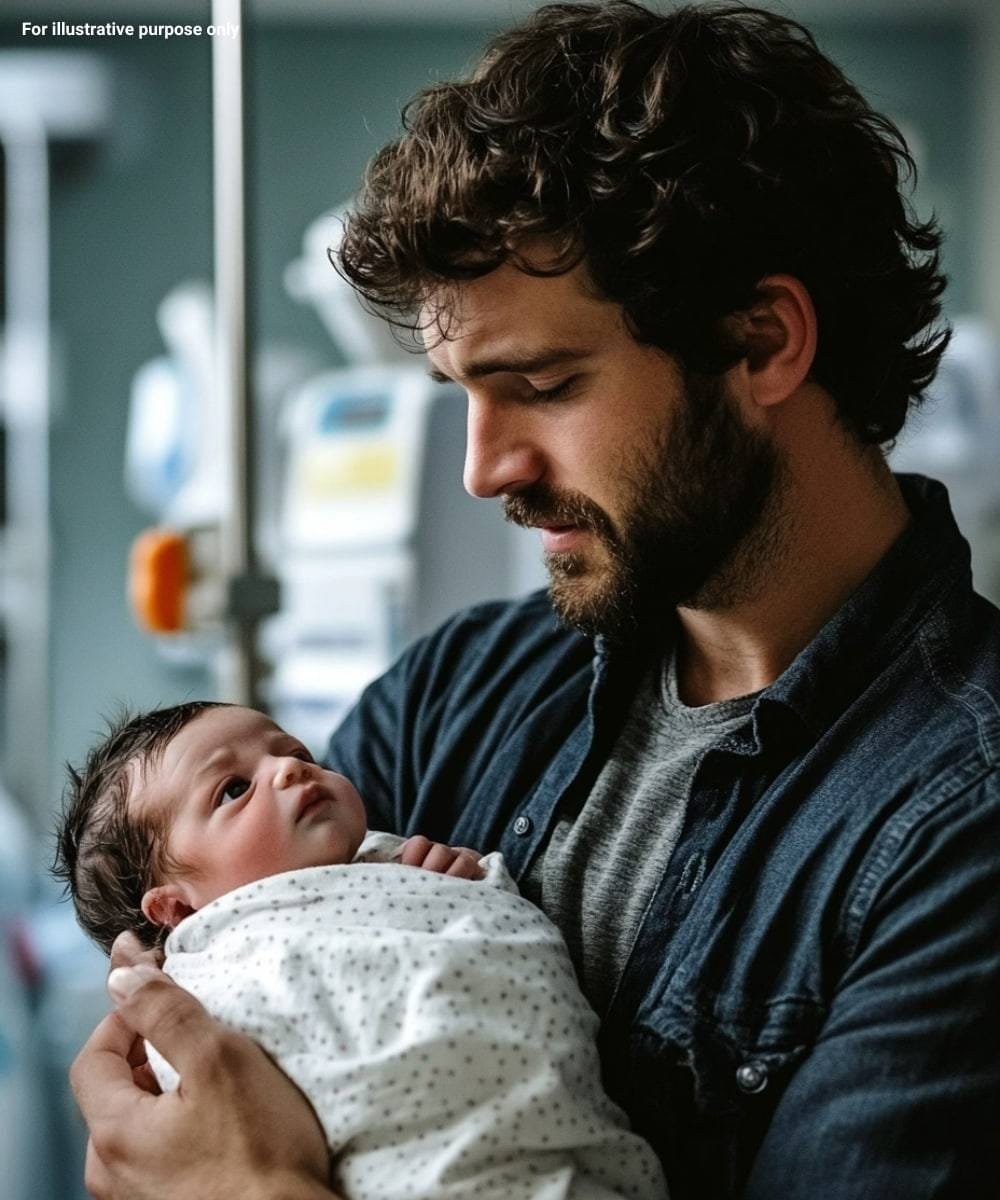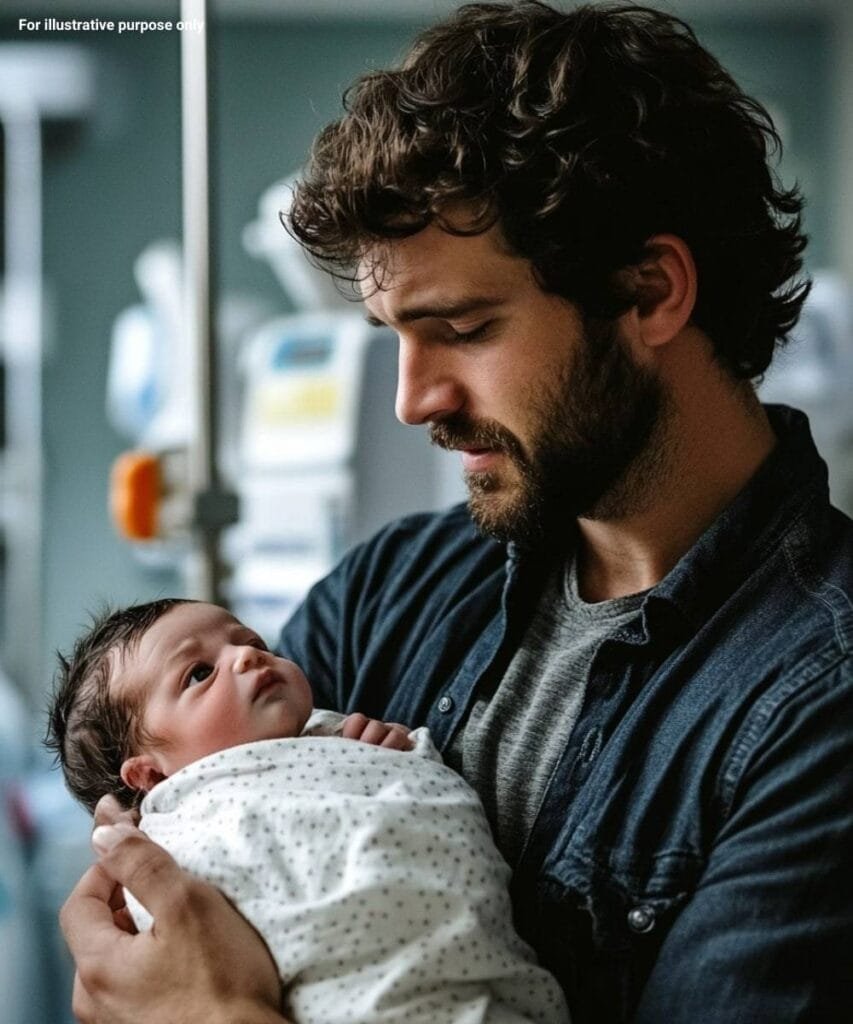“The child was born deaf? Leave him at the hospital, I’m not going to raise a child like that!” — my wife shouted.

“Our son was born deaf? I’m not ready to raise a child like that!” — I had never seen Olga so furious before.
“What are you saying, Olga? He’s flesh of our flesh,” — I looked at her as if I was seeing her for the first time.
The doctor placed a hand on my shoulder and said,
“Complete congenital deafness. Unfortunately, there’s no chance of recovery.”
Reality felt harsh through the sounds my son would never hear.

“You don’t understand, Sasha,” — Olga said, wrapping her arms around herself.
“This is a life sentence. Special needs… We’ll ruin our lives. When will we ever get to live?”
I looked at the tiny bundle. A wrinkled, rosy, peaceful little face.
“I’m taking him home,” — I said gently but firmly.
“What?”
“I said, I’m taking the baby. Alone.”
“Are you out of your mind? You work part-time as an electrician! How will you raise a baby like that?”
“Just like any other. One day at a time.”
The next morning, I found Olga had left. She left a note with only two lines:
“I’m sorry. I can’t handle this.”
Five years of life together reduced to four words on a torn piece of paper.
A week later, I brought my son home.
“And how are you going to manage alone?” — our neighbor Marina Petrovna called out from behind the fence as I walked toward the house.
“I have no idea,” — I replied honestly. “But there’s no other choice.”
The first few months were an endless battle for survival. I learned to change diapers with one hand while holding a bottle with the other, balancing it with part-time work.
People in the village whispered:
“Poor guy,”
“He shouldn’t have let his wife go,”
“A man shouldn’t be dealing with diapers.”
But I discovered a simple truth: my son didn’t know he was missing anything. To him, the world had always been silent. That didn’t make him incomplete. His world just followed different rules.
Every day, we learned a new language — one made of glances, gestures, and touches. I learned to read even the smallest changes in his mood, and he learned to understand me without a single spoken word.
Watching him sleep in his crib, I often thought:
“How can someone reject their own child just because he’s different?”
Luckily, I had recently inherited a house from my parents. I sold it and used the money to cover our expenses. I only worked when a neighbor could watch over the baby.
That’s how our new life began.
Five years later, Denis had become a smart, smiling boy with wild brown curls.
Our home was full of a language without sound — a language of signs and expressions. I had mastered sign language for objects, actions, and feelings. Denis learned it too.
At night, after Denis had fallen asleep, I would call schools trying to register him.
“Mr. Alexander, our school isn’t equipped to educate a child like yours,” — the principal, Nadezhda Igorevna, said gently but firmly.
“Specialists are needed. Special methods…”
“What if I attend classes with him? Translate everything for him?”
“When would you work?” — she sighed. “He needs a boarding school for the hearing-impaired in the city.”
The solution came unexpectedly with the arrival of a new teacher.
Anna Sergeevna had transferred from the city to our village school. I met her for the first time at the local store, where she was struggling to explain something to the shopkeeper.
“We don’t have any newspapers,” — I stepped in. “But we do have Zinaida Petrovna. She delivers mail and spreads all the gossip. Basically a walking newspaper.”
Anna laughed and extended her hand:
“Thanks for the tip. I’m Anna, the new elementary school teacher.”
“My son says you have a beautiful smile,” — I translated.
“You know sign language?” — she asked, surprised.
“Yes,” — Denis signed. “Dad taught me.”
To my surprise, Denis already knew a lot. He could lip-read, knew basic math.
“And he has incredible attention to detail. He can’t hear, but he notices things others miss.”
One evening, while Denis was fast asleep, Anna and I sat on the porch.
“You know,” — she said softly, “I’ve never met a father like you.”
“What kind of father?”
“A real one. The kind who doesn’t take the easy way out.”
Six months later, we got married.
No fanfare, no noise — just the closest people. Denis carried the rings with pride, his little chest puffed out.
Another six months later, a little miracle arrived.
Anna returned from the city with an experimental hearing aid she got through old contacts.
“It won’t give him full hearing,” — she warned, “but it might help him detect loud sounds.”
We installed the device without expecting much. Anna rang a small bell beside Denis’s ear.
His face lit up — eyes wide, mouth open in amazement.
“I felt something! What was that?”
Over time, Denis started calling Anna “Mom” for the first time.
“Tell me about my real mom,” — he signed confidently.
I had known the question would come one day, but it still caught me off guard.
“Why now?” — I signed slowly.
“I want to understand what’s behind me before I move forward,” — Denis smiled.
“I got a job offer,” — he continued. “From an IT company. Remote developer. They liked my project.”
Despite his deafness, Denis had developed an incredible ability to spot patterns in code that others missed.
“Congratulations, son!” — I hugged him.
“A new chapter begins.”
“I want to settle everything from the past before moving forward.”
“When the doctors told your mom about your condition, she broke down,” I explained.
“She was afraid. Afraid she wouldn’t be able to handle it, afraid of the life that lay ahead.”
“She wanted to leave me at the hospital?” — Denis asked.
“Yes,” — I admitted. “She said she couldn’t raise a special child.”
“Did you ever tell her about me? Try to find her?”
“No,” — I muttered. “She left for good. I heard she got married, had more kids. I thought, if she wants to find us, she will.”
“Do you regret it?” — his gaze pierced mine. “Staying with me?”
I smiled:
“Not for a single day, son. Not for a single minute.”
“What’s this serious conversation about?” — Anna signed as she joined us.
“The past,” — Denis answered, then turned to me.
“I forgive her, Dad. But I don’t want to meet her. My real mom is here,” — and he looked warmly at Anna.
“He’s become an incredible person,” — she said, resting her head on my shoulder.
“Thanks to you,” — I kissed her forehead.
“No,” — she replied, shaking her head. “Thanks to your decision.”
And so, we sat together under the evening sky — not a perfect family, but a real one.
She left because she couldn’t handle my condition.
But we stayed.
And we became a family.





